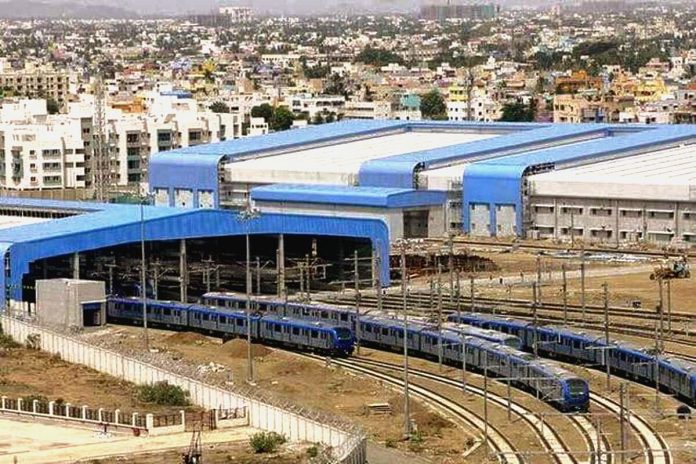Commuters will soon have the option to use small electric vehicles (EV) to reach phase-2 metro stations in Chennai.
Chennai Metro Rail Limited (CMRL) plans to operate feeder services for first and last mile connectivity on its own. They are considering seeking permission from the government to run small electric buses and electric auto-rickshaws.
The Phase II project will involve the construction of 128 stations and three rail corridors. Corridor 3 will run from Madhavaram to SIPCOT, covering a distance of 45.8 km. Corridor 4 will span from Lighthouse to Poonamallee Bypass, covering a distance of 26.1 km. Lastly, Corridor 5 will connect Madhavaram to Sholinganallur, spanning a distance of 47 km.
The anticipated opening of the 116.1km phase-2 is between 2026 and 2028. The estimated cost of Chennai Metro Rail Phase II project is Rs 61,843 crore.
According to a Metro rail official, the government has expressed interest in having CMRL operate small e-buses and e-autos.
However, before seeking government approval, various aspects need to be planned, such as procurement, routes, operation, charging points for vehicles, and fares.
The option to collaborate with a firm or operate independently will be considered at a later stage.
The official also mentioned that once the Kilamakkam bus terminus is operational, buses can be operated from there to the airport, even if train services are not available yet. However, permission needs to be obtained for operating services to any bus stop.
The proposal for CMRL to operate its own feeder services for first and last mile connectivity in phase-2 comes in response to the inefficiency experienced in phase-1 corridors. CMRL faced challenges in providing an effective first and last mile connectivity during this phase.
During the pandemic, CMRL attempted to introduce various types of feeder services, including share-autos, share cabs, e-bikes, and app-based cabs. Unfortunately, these services did not receive sufficient patronage and had to be discontinued.
Currently, CMRL has partnered with MTC to run 22 small buses from several major metro stations. However, passengers using smaller stations like LIC or Thousand Lights are still required to spend extra money on auto-rickshaws for last mile connectivity.
Although there are vehicles exclusively serving IT parks, as well as 40 electric autos and bicycles at four stations, there is still a lack of proper last mile connectivity at all 41 stations.
According to experts, CMRL could consider operating electric vehicles through MTC or private firms that are already familiar with the travel needs of the people, rather than managing the feeder service on its own.
Sivasubramaniam Jayaraman from the Institute for Transportation and Development Policy (ITDP-India) suggests that CMRL should engage in discussions with the state transport department, which has the authority to issue permits for first and last mile connectivity, reports Times Of India. He believes that a market-driven approach, where the open market can attract firms to operate for CMRL, would be more effective.


